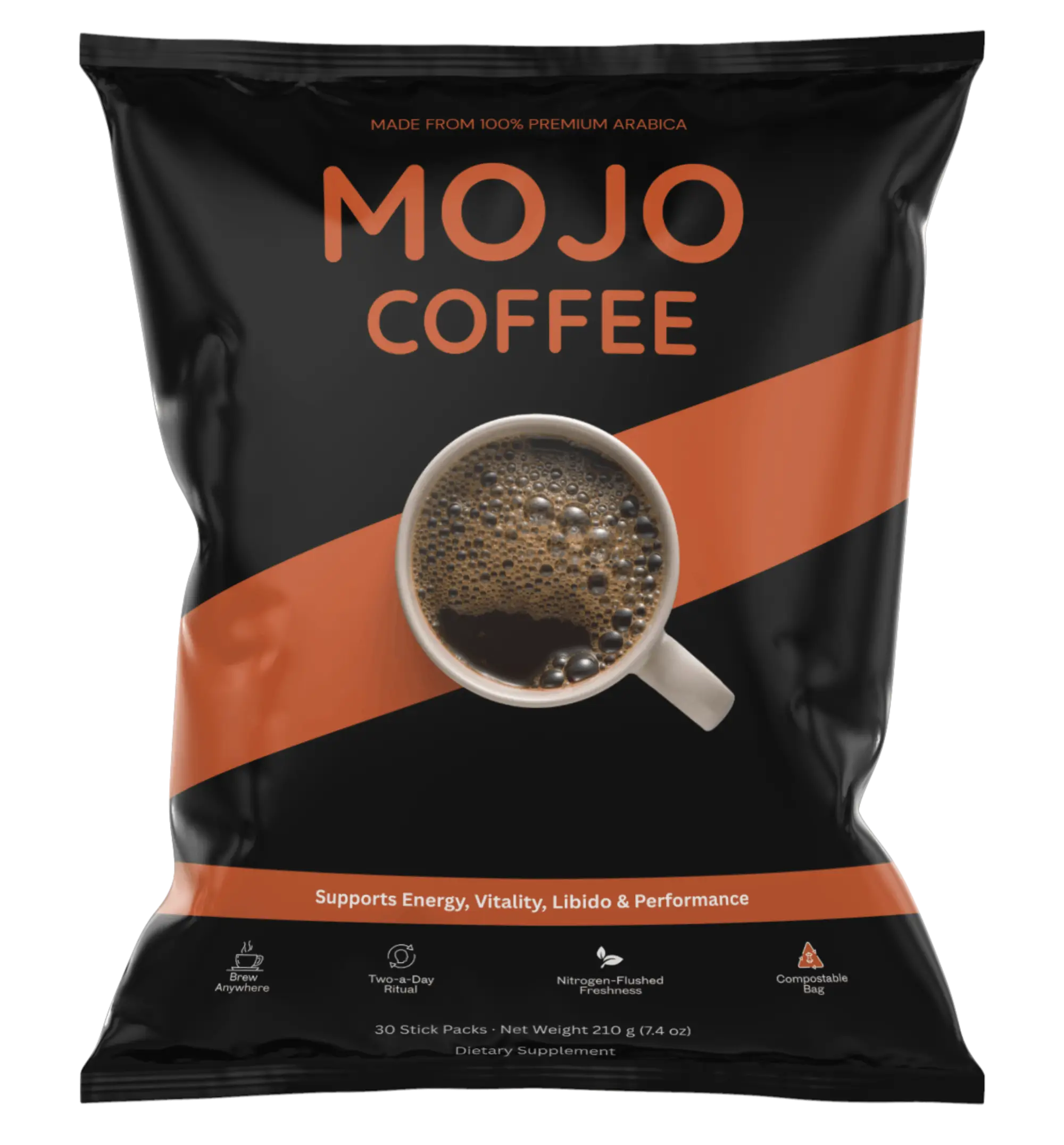
How Sleep, Stress, and Diet Affect Your Sexual Energy
Sexual energy—or libido vitality—is not simply a matter of hormones or “mood.” For men, especially over 30, and couples seeking lasting intimacy, it’s the sum of intertwined systems: sleep, stress, and diet. These three lifestyle pillars profoundly influence hormonal balance, vascular health, neural signaling, and emotional readiness.
Defining Sexual Energy: Biological and Energetic Perspectives
Sexual energy is often thought of in esoteric or metaphorical terms (chi, prana, libido). In modern biomedical terms, it refers to:
- Hormonal drive (testosterone, estrogen, adrenal hormones)
- Neurotransmitter signaling (dopamine, oxytocin, serotonin)
- Vascular function and metabolic energy
- Psychological and emotional readiness
These layers operate in concert. For instance, testosterone primes neural circuits for arousal; dopamine provides motivational “wanting”; oxytocin fosters emotional bonding; and nitric oxide (via vascular health) enables physiologic response.
From an “energetic” lens, sexual energy lies at the nexus of vitality and regeneration: the capacity to initiate, sustain, and recover sexual function without burnout.
Hormonal Foundations of Libido
Among hormones, testosterone is central in men for sexual desire and performance. A recent review by OUP Academic notes that testosterone “has a primary role in controlling and coordinating male sexual desire and arousal, acting at multiple levels.” Clinical guidelines recommend measuring testosterone in men who present with low libido or erectile dysfunction.
However, hormones don’t operate in isolation. Cortisol, the primary stress hormone, can blunt libido when chronically elevated. The same review warns that “increased levels of cortisol may have deleterious effects on sexual desire beyond hypogonadism induced by cortisol excess.”
Moreover, some data suggest that the interaction between testosterone and cortisol matters. A cross-sectional study found that testosterone predicted solitary sexual desire only in men with low cortisol levels; when cortisol was high, the positive effect of testosterone on libido diminished.
Other endocrine players also matter: prolactin, thyroid hormones, and estrogen/aromatization can influence libido and must be considered in comprehensive assessments (e.g., high prolactin can suppress desire).
Thus, optimal sexual energy is often a balance: sufficient testosterone, low-to-moderate cortisol, and healthy regulation of supporting hormones.
Sleep Physiology and Reproductive Health
Sleep is foundational for hormonal renewal, neural recovery, and vascular repair. Inadequate sleep is a strong suppressor of sexual energy.
a) Sleep Restriction Lowers Testosterone
A PMC-controlled study of healthy young men reduced sleep to 5 hours per night for one week; their daytime testosterone levels dropped by 10–15% versus rested conditions. For a man past age 30, this magnitude of decline can compound with age-related testosterone drops (which average 1–2% per year).
b) Sleep, Endothelial Function & Vascular Health
Erectile function depends on healthy blood vessels and nitric oxide–mediated vasodilation. Short sleep impairs endothelial function. Partial sleep restriction impairs flow-mediated dilation in healthy volunteers. Moreover, short sleepers show endothelin-1-mediated vasoconstriction increases and diminished nitric oxide responses. Thus, sleep loss can reduce the vascular capacity needed for sexual arousal.
c) Hormonal Disruption & Cortisol
Chronic sleep deficit dysregulates the hypothalamic–pituitary–adrenal (HPA) axis. Short sleep is associated with altered cortisol rhythms and exaggerated cortisol awakening response. Disrupted cortisol rhythms can feed into libido suppression (see stress section).
d) Sleep Quality & Libido Correlation
A 2023 diary study (both sexes) found that sexual activity and intimacy correlated with improved subjective sleep quality. While causality is bidirectional, this suggests that sexual vitality and sleep quality often improve together.
Summary: For men over 30, prioritizing consistent, adequate sleep (7–9 hours) is non-negotiable for preserving testosterone, vascular health, and hormonal balance.
Stress, Cortisol, and Hormonal Interference
Chronic psychological stress is among the most powerful disruptors of sexual energy.
a) Stress and Libido Correlations
In ecological momentary assessment (daily-life) studies, higher subjective stress is associated with lower concurrent sexual desire and arousal, and sexual activity is itself associated with lower subsequent stress. One recent cross-sectional work published by Science Direct similarly reports negative associations between perceived stress or cortisol and sexual desire/arousal.
b) Cortisol’s Inhibitory Role
Cortisol appears to antagonize the male sexual response cycle. A study by PMC suggests that cortisol dysregulation might play a role in erectile dysfunction. Another review by Translational Andrology and Urology notes that cortisol levels drop at the initiation of sexual response in healthy men, implying that cortisol suppression is part of normal sexual activation.
Mechanistically, elevated cortisol can inhibit gonadal (testosterone) function, shift energy away from reproduction, and impair vascular tone.
c) Neural Pathways & Emotional Regulation
In a neuroimaging study by Frontiers, baseline cortisol levels correlated with activation in the anteromedial prefrontal cortex (amPFC) during sexual approach tasks. Higher cortisol was negatively correlated with sexual inhibition and positively correlated with mood improvements post-sexual tasks. This suggests that cortisol dynamically modulates brain circuits tied to sexual regulation and decision-making.
d) Complexity: Sex Differences & Nonlinear Patterns
In one experimental stress induction, men and women had different cortisol responses despite similar subjective stress. Also, in some meta-analyses by ResearchGate, stress moderates the relationship between testosterone and sexual desire: lower stress amplifies testosterone’s positive effect on desire.
Summary: Chronic stress imposes a double hit on sexual energy: it suppresses testosterone, dysregulates neural control, and erects psychological barriers. For men over 30, stress management is critical to preserve sexual vitality.
Nutritional Pathways to Sexual Vitality

Image Credit: Pixabay Via Pexels
Diet provides the substrates for hormone synthesis, neuronal signaling, vascular health, and metabolic energy.
a) Macronutrient Balance and Testosterone
A meta-analysis of intervention studies showed that low-fat diets reduce total and free testosterone in men, compared to higher-fat diets. Though the clinical significance in healthy men remains debated, the data caution against overly restrictive fat intake in men with sexual performance goals.
Proteins (especially arginine) support nitric oxide production. Healthy fats (monounsaturated, saturated in moderation) support steroidogenesis (cholesterol is the precursor to sex hormones).
b) Micronutrients & Vascular Support
Key micronutrients implicated in sexual health include:
- Zinc – essential in testosterone synthesis and sperm function
- Magnesium – supports vascular tone and neural signaling
- Vitamin D – low levels correlate with ED and low testosterone in observational studies
- Antioxidants & polyphenols (e.g., in berries, dark chocolate) – protect endothelial and neural tissues
- Omega-3 fatty acids – reduce inflammation, support vascular health
While not all these links are conclusively proven, the rationale is strong.
c) Gut Health, Inflammation & Libido
Emerging research by PMC highlights the gut–brain axis in sexual health. Gut microbiota influence systemic inflammation and produce metabolites that modulate neurotransmitter pathways (e.g., SCFAs influencing serotonin). Dysbiosis (imbalanced gut flora) may degrade mood, energy, and vascular function, all of which are relevant to sexual energy.
d) Dietary Patterns & Longevity
Diets rich in whole foods—Mediterranean diet, DASH style—have been associated with lower rates of erectile dysfunction in epidemiological studies (though rigorous causation is more complex to establish). The synergy of dietary patterns, rather than isolated nutrients, seems more consistent for maintaining sexual vigor.
Summary: A balanced diet with adequate healthy fats, protein, micronutrients, and low inflammatory load supports hormonal, vascular, and neural systems essential to sexual energy.
Gender-Specific Impacts: Men vs. Women
Though this article is male-oriented, insights from female sexual health can sharpen understanding, especially for couples.
- In women, stress, cortisol, and inflammation also suppress libido, but hormonal interplay (e.g., estrogen fluctuations across cycles) adds complexity.
- Some cortisol-libido relationships (e.g., drop in cortisol during arousal) are seen in women, too.
- In couples, mismatched libido rhythms may stem from different sensitivities to sleep, stress, and diet.
For men, the stability of testosterone over time often means that lifestyle shifts produce more consistent effects. For women, cyclical variation means interventions may require timing around menstrual phases.
Thus, couples seeking synchronized sexual energy should respect both shared and sex-specific patterns, adjusting as needed.
Emotional & Psychological Aspects of Sexual Energy
Even with ideal hormones, libido can falter due to psychological blocks: performance anxiety, body image, emotional disconnection, or mental fatigue.
- Self-esteem and confidence impact the willingness to initiate intimacy.
- Emotional safety and communication foster trust and reduce inhibition.
- Mood disorders (depression, anxiety) often co-occur with low libido; serotonin reuptake therapies may blunt sexual drive as a side effect.
Interventions such as couples therapy, sex therapy, mindfulness-based stress reduction, and cognitive-behavioral techniques can restore psychological readiness and sustain libido over time.
Integrative Lifestyle Framework
Rather than treating sleep, stress, or diet in isolation, the best results come from synergy. Below is a framework:
- Sleep Protocol
- Fixed sleep schedule (e.g., 10 pm – 6 am)
- Pre-bed wind-down, screen-free time
- Cool, dark, quiet sleep environment
- Stress Management
- Daily mindfulness, deep breathing, or meditation
- Scheduled recovery (hobbies, rest)
- Cognitive reframing of stressors
- Periodic digital detox
- Nutrition Strategy
- Emphasize whole foods, high-quality fats, lean proteins
- Include libido-supporting foods: oysters, dark chocolate, leafy greens
- Avoid ultra-processed foods, excessive sugar, and refined carbs
- Support gut health (prebiotics, fermented foods)
- Movement & Physical Load
- Resistance training increases anabolic signaling
- Cardiovascular health supports vascular function
- Avoid overtraining (which increases cortisol)
- Emotional & Relational Nourishment
- Daily intimate connection (non-sexual)
- Communication about expectations and needs
- Shared activities that enhance bonding
Over months, these habits tend to “stack” — improved sleep reduces stress, better diet supports hormonal balance, and emotional closeness amplifies sexual energy.
Supplementation & Functional Medicine Approaches
Supplements should never replace foundational habits, but can support restoration when gaps exist.
- Adaptogens, such as ashwagandha, have been shown to reduce cortisol and sometimes enhance testosterone in clinical trials (though results are moderate).
- L-arginine / L-citrulline: precursors of nitric oxide, may improve endothelial function in men with mild ED (but evidence is mixed).
- Maca root, Panax ginseng, and Tribulus terrestris: used traditionally, though clinical data are inconsistent.
- Micronutrient repletion: correcting vitamin D, zinc, and magnesium deficiencies may yield gains.
- Hormone therapy (under medical supervision): for hypogonadal men, testosterone replacement can restore libido and erectile function.
Because hormonal therapies carry risks and require monitoring, they must be guided by clinicians experienced in functional or integrative medicine.
Long-Term Habits for Sustained Sexual Energy
Sustaining sexual vitality over decades requires consistency, feedback, and adaptation:
- Routine audits: quarterly checks on sleep quality, stress levels, and diet adherence
- Objective biomarkers: periodic testosterone, lipid panels, vascular testing
- Adaptation: adjusting diet or stress protocols as life phases change (e.g., midlife)
- Resilience building: mental coping strategies for inevitable stressors
- Sexual novelty and variety: preventing habituation and maintaining desire
Embracing lifelong commitment to supportive habits—not quick fixes—sexual energy becomes a stable asset, not a precarious resource.
Final Reflection
For men over 30, couples, and wellness-conscious readers, the journey to lasting sexual vitality runs through three pillars: sleep, stress, and diet. Disruption in any corner impairs hormones, vascular health, neural circuits, or emotional readiness.
But when aligned, they unlock synergy: better sleep supports testosterone and repair, lower stress preserves hormonal balance and mental space, and good nutrition fuels cellular and vascular systems. Supplementation or clinical hormone support can help in selective cases, but the foundation remains lifestyle.


